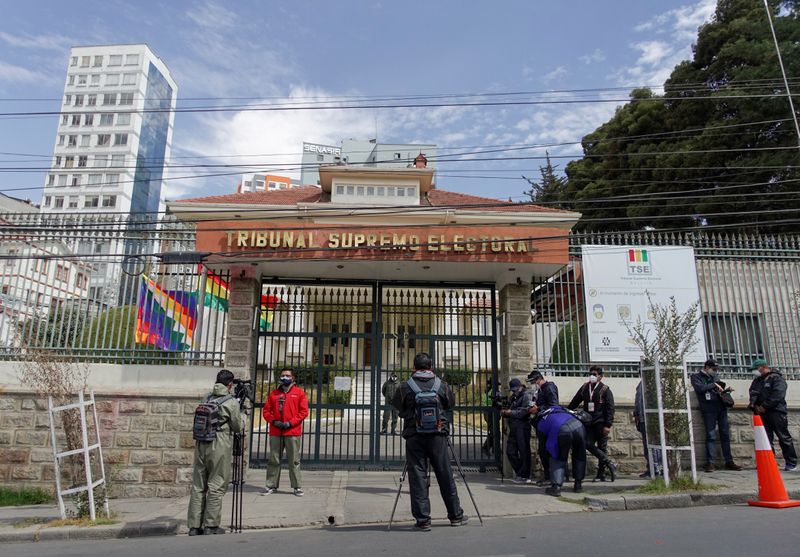By Daniel Ramos
LA PAZ (Reuters) - Bolivia's general election will be pushed back until Oct. 18 as the coronavirus pandemic grips the South American nation, which could fan tensions between the interim conservative government and the socialist party of former President Evo Morales.
The head of the electoral tribunal said on Thursday that the vote would be postponed from the previously scheduled Sept. 6 date to ensure the safety of voters, with hospitals and cemeteries straining under the impact of the virus.
"This election requires the highest possible health security measures to protect the health of Bolivians," tribunal President Salvador Romero told a news conference in La Paz.
The vote is key to the political future of the Andean nation of 11.5 million people after a fraught election last year sparked widespread protests and led to the resignation of the country's long-term leftist leader Morales.
In a political vacuum and amid deadly conflicts on the street, right-wing lawmaker Jeanine Anez was ushered into power, pledging to hold quick new elections, originally planned for May before being delayed by the pandemic to September.
Anez is running in the election, while Morales is pulling the political strings from exile in Argentina with his Movement for Socialism party, whose candidate Luis Arce leads in some polls.
Anez said she would accept the new date.
"Whatever the date, the government calls for promoting economic revival, the fight against the virus and the consolidation of democracy," she wrote on Twitter.
Morales wrote on Twitter the delay "will only harm the people" and blamed the interim government for its response to the pandemic. He added the move was unconstitutional and a tactic for his opponents to "gain more time."
A federation of coca farming groups around the former Morales stronghold of Chapare in central Bolivia rejected the commission's "unilateral" decision.
They added that if the delay was not retracted within 72 hours it would launch "mobilisations" which have in the past been characterised by street protests and road blockades on crucial trade routes.

The new election schedule would see a second-round held on Nov. 29 if there was no clear winner in the first-round vote.